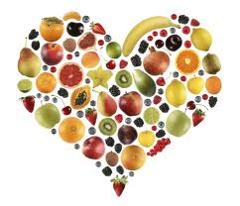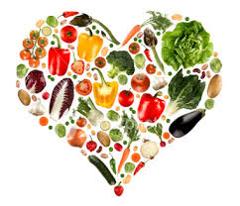Soccer Nutrition Myths

Soccer Nutrition Myths Proven Wrong
Soccer Nutrition Myths for players food, and water intake.
Nutrition for soccer players, or nutrition in general, is not an easy topic to write about.
Throughout time, there were many different nutritional myths people believed to be true.
We
just didn't have access to the technology for researching how nutrition
affects soccer players, or sports athletes in general.
Many soccer nutrition myths from the past have been proven false, although some of them still remain true today.
Nutritional Myths for Soccer Players
Performance is not effected by what you eat!
This is definitely one of the soccer nutrition myths that many people overlook.
Mentality
of soccer players was different 50 years ago. Soccer players did not
make ridiculous amount of money to be able to hire cooks or
nutritionists, but they ate whatever was put in front of them back than.
As the time passed by, researchers have proven that performance is greatly effected by what you eat and how the body is fueled, especially before a high intensity soccer game.
What we eat greatly effects the performance on the field.
By the second half of the game, our body depletes what nutritional fuel it has, and starts relying on fat for energy, however fat is not a very good source of instant energy because it burns rather slow in our body.
One of the oldest soccer nutritional myths is that performance during a soccer match is not effected by what you eat, making it false in every way you look at it.
Soccer nutrition needs to be full of Carbohydrates that make Glycogen, which is then stored in our muscles and liver, providing quick energy for peak performance on the field.
Soccer players diet in particular usually consists of 40% carbohydrates, 40% fat and 20% protein.
Soccer Nutritional Myths
Sports drinks are made for marketing, rather than proper hydration.
We all know that water is the number one liquid that our body needs for hydration and survival.
Our water consumption should be about 75% of our body weight in ounces, so 75 oz of water for a 100 lb person is the right way to hydrate our body.
Water is
also found in many foods, like whole grains, fruits, vegetables etc...
meaning that our water consumption is not in liquid form only.
Sports drinks came after a lot of research for different ways to improve our water intake, hence the invention of Gatorade, Powerade and countless other sports drinks.
Sports drinks are made with different components to make it easier for our bodies to process the drinking of fluid from small intestine and into our blood.
Research has proven that a Sports Drink high in sugar will stay in our stomach much longer, while adding just the right concentration of Salt will cause our bodies to easily process the fluid from the small intestine and into the blood.
Sports drinks will never take the place of water, however Sports Drinks have been proven to help with faster hydration.
Sports drinks, like Gatorade or Powerade, should be consumed during the sport activity breaks and right after the game or practice.
Water is still the most important liquid our body needs, but sport drinks are made to taste great and have many nutrients added to them for quicker release in our body, making it ideal to consume during or right after an activity for quicker recovery.
Soccer Nutrition Myth
ALL Sports drinks are the same.
Many people are under the impression that all the sports drinks are the same, however looking at the label will prove this to be another one of soccer nutrition myths.
There are actually three different types of sports drinks:
- Fluid Replenishment Drinks
- Carbohydrate Replenishment Drinks
- and Energy Drinks.
Fluid replenishment drinks are formulated to provide optimal concentrations of sugars and salts, leading to rapid absorption and retention of fluids by our body, to prevent dehydration and improve players performance.
Carbohydrate replenishment drinks are designed to provide a fast source of carbohydrates that are rapidly absorbed by the intestines.
These sports drinks can be used during a game for extra fuel, and right after playing, to start restoring energy for the next day or game.
Best sports drinks have a little amount of protein, which speeds the uptake and deposit of fuel into the muscles.
Energy drinks are highly caffeinated drinks that deliver fast energy due to caffeine's effect on the central nervous system. Energy drinks DO NOT add more fuel to the muscles.
Next time you decide to hydrate with a sports drink, take a look at the label to see which sports drink is high in Carbs and low in Protein.
Soccer Nutrition Myths Proven Wrong
After the soccer game, what you eat does not matter.

This is a very false soccer nutrition myth.
When the game is finished, our body is in need of some major refueling.
Consuming foods and drinks rich in Carbohydrates within the first two hours after the game is crucial for quick recovery and body refueling.
Refueling our body can be done by drinking carbohydrate replenishment drinks or eating foods rich in carbohydrates such are bagels with jam, pizza, pretzels, raisins or other dried fruits etc.
Don't forget to intake lots of water for fluid replenishment, protein for next day energy, and carbohydrates for instant body refueling.
Soccer Nutrition Myths
Soccer players get enough protein from what they eat.

This is another nutrition myth that has been proven wrong for soccer players.
Most people think that athletes get enough protein through the foods we eat every day.
What most people don't know or fail to understand is that we consume protein in
conjunction with fat.
Ground beef or fried chicken is what people tend to eat to replenish protein, not knowing that these foods are high in protein, but they are also high in FAT as well.
Red meat should always be trimmed of fat, ground beef should be very lean and the chicken skin should be removed before preparing it to get the most protein out of these foods, and least amount of fat.
Protein is very important part of every soccer players nutritional post-game meal, because protein helps with rebuilding torn muscle tissue and storing carbohydrates in our muscles and liver for quick recovery and energy replenishment.
You can check the label to see what foods are rich in protein and carbohydrates.
FAST FOOD IS NOT A VERY GOOD SOURCE FOR RECOVERY :)
There are many sports drinks that are rich in Carbohydrates and Protein, but we need to eat as well :)
Soccer Nutrition Myths
Coaches just coach, they shouldn't care what the players eat.
This is another nutritional myth about soccer players and coaches.
Coaches
spend a lot of time with their players through practice and games, so
not caring what the players eat is not a good example for any soccer
coach.
Every Coach should have some understanding of proper soccer nutrition, simply because their influence is high among the players, and players will ask their coach about the proper foods that are good for energy and recovery.
Because the players, especially kids, eat whatever is put in front of them, Coaches should talk to parents about proper nutrition for peak performance in games or practice.
After all, parents are the ones given the role of the assistant coach when it comes to providing the right soccer diet for their kids.
Parents and Coaches need to be well informed on what is good to serve their kids and what to avoid.
Soccer Nutrition Myths
Body is our best indicator for when to drink fluids (water).
This is one of the most common soccer nutrition myths that so many people are wrong about.
Human thirst mechanism doesn't kick in until we have lost about 2% of our body weight. Once our body loses 2% of body weight, we are already feeling the fatigue.
Water should be consumed early before the game, every 15 - 20 min during the play, during the half time and most importantly after the game or practice.
We should consume water at 75% of our body weight in ounces for proper hydration.
Proper water hydration for 100 lb person should be 75 oz of water.
Water is the most important part of every soccer players nutritional need and should be made into a habit of drinking a glass of water every 2 hours throughout the day.
Keep in mind that water is found in many foods
that we eat, so the 75% body weight to water ratio includes all the
foods that contain water.
Drinking water and always staying
hydrated will not only offer peak performance for the athlete, but it
will help with the athletes overall health as well.
For more information on Sports Nutrition Myths visit Active - Top Ten Nutrition Myths.
SOCCER NUTRITION
Nutrition for Soccer is fuel for the body. Learn more about soccer nutrition importance.
Soccer Hydration - Why is Hydration so important to soccer players.
Soccer Nutrition Myths that have been proven wrong over the history of the game.
Carbohydrates Definition in basic terms is carbon, oxygen and hydrogen, hence the word CARBOHYDRATE.